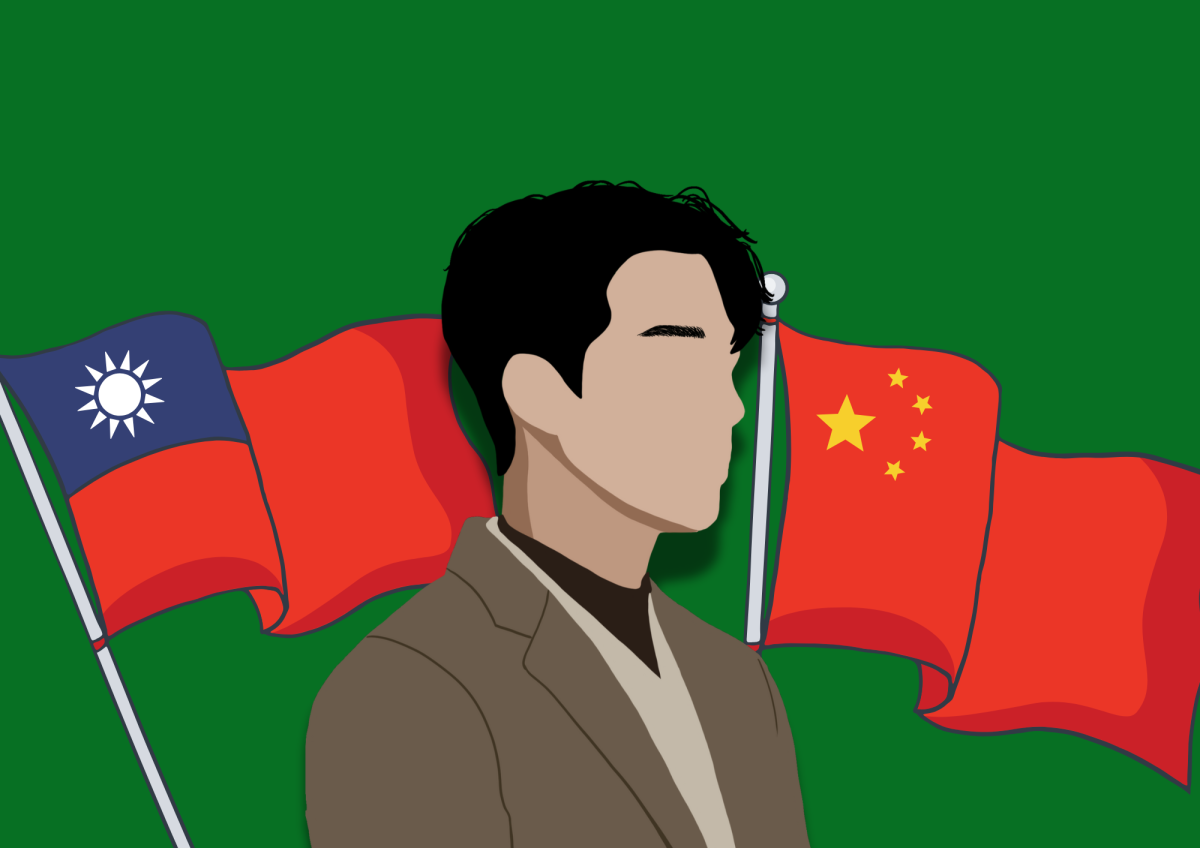Before I moved to Taiwan two years ago, I knew only three things about the island: it invented bubble tea, its weather was relentlessly rainy and it wanted freedom from the suffocating grip of China. Ah yes, that last part. Since the end of the Chinese Civil War in 1949, when the Kuomintang (KMT) fled to Taiwan after being defeated by the Chinese Communist Party (CCP), Taiwan’s fight for independence has undoubtedly become its most recognizable trait within the international community; everyone has heard of the infamous Sovereignty Standoff of the South China Sea.
But Taiwan wasn’t the first society I’d lived in that was filled to the brim with anti-China, pro-democracy sentiment. After almost a decade of living in Hong Kong – a special administrative region of China that has long fought for political autonomy – I’ve seen it all: anti-Beijing slogans spray-painted on governmental buildings, violent protests at city centers, unexpected arrests in front of restaurants and more. But I’d noticed that, while many of my local classmates felt a sense of distant disdain for mainland China, they openly embraced the label “Chinese.” I saw a similar attitude reflected in other Asian countries with large ethnically Chinese populations, such as Singapore, Malaysia and Laos. There seemed to be a very clear distinction between association with modern-day China and its government, and association with Chinese history and culture in general. In other words, there was a clear distinction between national identity – which is often based on shared citizenship, political structures and legal frameworks – and ethnic identity – which is often rooted in shared ancestry, language and traditions. I expected to encounter a resemblant outlook here at Taipei American School (TAS). But I was completely wrong.
Upon arriving at TAS, I immediately noticed the “hush-hush culture” that surrounded the label “Chinese.” I soon learned that it was deemed insensitive, politically incorrect and ultimately an inaccurate description of the Taiwanese identity. So, I made sure to always refer to my peers as “Taiwanese” and nothing else. But I then noticed that some of my classmates causally alternated between the terms “Chinese” and “Taiwanese” when describing their cultural backgrounds, which perplexed me even more. So…is calling a Taiwanese person who has ancestral roots in China “Chinese” offensive or acceptable? After administering a survey to the student body in an attempt to answer that question and further explore why TAS students label their identities differently, I uncovered some patterns.
Of the students surveyed, 20.8% identify as both Taiwanese and Chinese, 4.2% identify as primarily Chinese and 75% identify as primarily Taiwanese.
Those who identify as primarily Taiwanese are more likely to view China’s power and influence as a threat, feel a sense of hostility towards mainland China and view Taiwanese culture as distinctly different from Chinese culture. The vast majority of these students also happen to share two key familial characteristics: their families migrated from China to Taiwan between the 14th and 17th centuries for purposes related to economic development – a group known as 本省人 (běn xǐng rén) – and, now, their families generally affiliate with the Democratic Progressive Party (DPP).
On the other hand, those who identify either as primarily Chinese or both Taiwanese and Chinese are more likely to view China’s power and influence as non-threatening, have generally neutral (or even positive) opinions of mainland China and view Taiwanese culture as relatively similar to Chinese culture. The vast majority of these students also share two key familial characteristics: their families migrated from China to Taiwan after the Chinese Civil War – a group known as 外省人 (wài xǐng rén) – and, now, their families generally affiliate with the Kuomintang (KMT).
These patterns are not merely coincidental. Although most 本省人 (běn xǐng rén) are ethnically Chinese, century-long interactions with indigenous Taiwanese communities and Japanese colonists formulated a culture distinct from that of the mainland, on the basis of language, food, social values, and more. By the time the KMT arrived in Taiwan, many 本省人 (běn xǐng rén) felt unfamiliar with and detached from China. Yet, upon their arrival in 1949, the KMT imposed a series of measures that would come to be the source of great resentment within Taiwan for decades to come: Mandarin was imposed as the island’s official language, replacing local dialects like Taiwanese and Hakka; 本省人 (běn xǐng rén) were relegated to subordinate positions in the military and government, establishing institutional power imbalances; 本省人 (běn xǐng rén) were harassed, tortured, and sometimes killed as KMT officials suspected them of being spies for the CCP; martial law was enacted for 38 years to suppress political dissent. As such, the founding of the DPP in 1986 – which advocated for the democratization of Taiwan, the undermining of the KMT’s authoritarian rule, and Taiwanese self-determination – symbolized hope and change for 本省人 (běn xǐng rén).
While the label “Chinese” may still resonate with students whose grandparents grew up on the mainland, the label carries much more baggage and sensitivity for those whose families have been in Taiwan since the Black Death was around. And, unlike other ethnically Chinese groups around the world that resent the actions of the current Beijing government but still resonate with Chinese culture, the predicament of the Taiwanese is much more complex and long-winded. The label “Chinese” doesn’t just symbolize the current overreaching policy agenda of the CCP, like it perhaps does for Hong Kongers. Rather, it represents the century-long, institutionalized deprivation of Taiwanese people’s cultural identity, dignity and freedom.
Taiwan is extremely diverse in terms of migration history, political beliefs, language and culture. There is no one correct version of the Taiwanese identity: it varies from person to person and is influenced by a diaspora of factors. If a Taiwanese individual is uncomfortable with being labeled “Chinese,” then those feelings should be respected; they shouldn’t be expected to compromise their own sense of self-identification for the sake of conformity and making their identities easier to understand for others.
On the other hand, if a Taiwanese individual is okay with or even prefers to be labeled “Chinese,” then they shouldn’t be villified and ostracized for feeling so. The word “China” has garnered some negative connotations throughout history– in Taiwan and in the broader global community–but it’s not an inherently dirty word; there is nothing wrong with being Chinese.
The diversity of self-identification that exists at TAS amplifies a larger message to all those who may feel confused about their identities: you define you. Don’t let anyone else try to tell you who you are, and never be ashamed of staying true to yourself.


![A myriad of impressive trophies and awards. [ANNABELLE HSU/THE BLUE & GOLD]](https://blueandgoldonline.org/wp-content/uploads/2025/09/Awards2-1200x512.jpeg)
![Students' calendars say goodbye to exam week. [ANNABELLE HSU/THE BLUE & GOLD]](https://blueandgoldonline.org/wp-content/uploads/2025/09/Exam-week-1200x740.jpg)
![A collection of college flags. [PHOTO COURTESY OF AMBER HU ('27)]](https://blueandgoldonline.org/wp-content/uploads/2025/05/IMG_5029-1200x577.jpeg)

![An SAT word cloud. [PHOTO COURTESY OF WORDCLOUDS]](https://blueandgoldonline.org/wp-content/uploads/2025/05/SAT.jpeg)
![Collage of banned books, including “The Handmaid’s Tale” by Margaret Atwood. [MINSUN KIM/ THE BLUE & GOLD]](https://blueandgoldonline.org/wp-content/uploads/2025/04/IMG_4274-1200x681.jpeg)
